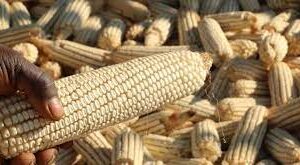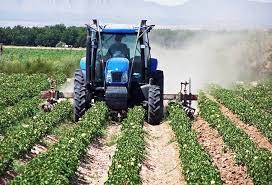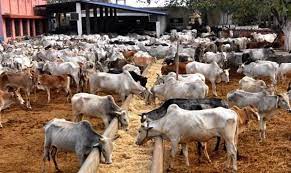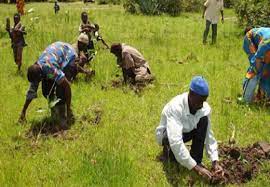The Director General and Chief Executive Officer, National Biotechnology Development Agency, Prof. Abdullahi Mustapha, has called on stakeholders in the biotechnology industry not to allow biotechnology to become subject of cheap political and public discourse.
He also urged media practitioners to ensure that the science of biotechnology must be communicated effectively if the narrative about Nigeria’s food security must change.
This is just as he revealed that TELA Maize is expected to be commercially released by the National Varietal Release Committee by early 2024.
Mustapha stated this recently at the end of the year get-together with journalists in Abuja.
He said there is the need to double efforts to encourage stakeholders’ participation in evidence-based discussions to build consensus regarding the acceptance and adoption of modern biotechnology in the country.
This he said would require a well thought-out strategy that addresses the concerns and interests of various stakeholders, including farmers, policymakers, scientists and the public.
“The media has been at the forefront in the communication of the science and relevance of biotechnology in Nigeria. We cannot afford to let down our guards, as the stake keeps getting higher with evolving challenges.
“The effective agricultural biotechnology advocacy campaigns pioneered by OFAB Nigeria have had significant and positive impacts on the Nation in the following ways:
“Increased farmer awareness and adoption of biotech crops: Campaign messaging that highlights the demonstrated benefits of biotech crops such as increased yields, reduced crop loss, and cost savings have convinced more smallholder farmers to plant genetically engineered varieties leading to expanded food production.
“Promotion of productive policy reforms: OFAB Nigeria’s advocacy for streamlining the approval processes for GM crops and subsidies that make biotech seeds more affordable for farmers have helped remove barriers to utilization of these technologies by farms of all scales. Supportive policies enabled rapid translation of biotech crops innovations from lab to field.
“Strengthened public research and development pipelines: Our advocacy initiatives have increased funding for vital crop biotechnology research taking place at universities and
public institutes nationally. Investing further in R&D expands the future pipeline of tissue-culture planting materials, biofortified crops, drought-tolerant varieties and other solutions tailored to the needs of the country’s farmers and consumers.
“Countered misinformation on health/environmental risks: Our fact-based advocacy has provided reliable information on biosafety review processes and scientific consensus regarding health and ecosystem impacts. These counters scare tactics from anti-GM lobbyists that derail public support and policymaker buy-in for biotechnologies,” he said.
Mustapha stated further that as Africa’s foremost biotechnology development agency, the agency has been committed to harnessing biotechnology for sustainable national development and that this is already yielding significant results, particularly at the grassroots level, where there is a growing appreciation for biotechnology’s capabilities to enhance food security and improve livelihoods.
The agency has become a driving force in utilizing biotechnology to enhance the quality of life for Nigerians and mitigate socio economic obstacles to development.
“As an agency, we are fully aligned with President Bola Tinubu’s declaration of a state of emergency on food security. NABDA, in collaboration with national and international partners, is already driving Nigeria’s economic growth with the commercialisation of two genetically modified crops, Bt. Cotton and Bt. Cowpea developed by Nigerian scientists at the Institute for Agricultural Research (IAR), Zaria, Kaduna State.
“Nigeria’s transgenic cowpea and the world’s first transgenic cowpea are revolutionizing the nation’s food production. Farmers who have planted and harvested this variety of cowpea have reported improved yields, reduced pests, reduced use of pesticides and enhanced livelihood.
“NABDA in collaboration with BIOCROPS Nigeria Ltd has revolutionized yam seedlings production, achieving its target of producing and distributing over two million yam seedlings to farmers. Great research progress has also been made towards the commercialisation of TELA maize, a collaborative research product of IAR, Zaria and the African Agricultural Technology Foundation (AATF) and which is drought tolerant and insect resistant. TELA Maize is expected to be commercially released by the National Varietal Release Committee, NACGRAB, and Ibadan in 2024,” he said.




